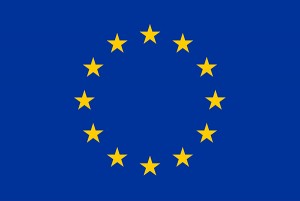Since December 1st 2023, MultiMed Engineers participates in the IMPROVE Project — Framework to IMPROVE the Integration of Patient Generated Health Data to Facilitate Value Based Healthcare.
Patient Generated Health Data (PGHD) and knowledge-sharing across the European Union (EU) will make healthcare provision ‘smarter’ and will accelerate the development of (cost-)effective and patient-preference based new treatments and medical devices and reduce the operational costs of integrated healthcare solutions by making the patient more central in the healthcare process.
Healthcare professionals, pharmacists, researchers and health regulators all over the EU generate and use large numbers of essential patient-related healthcare data that are critical to the quality and effectiveness of their work.
Unfortunately, there are still complex obstacles that make it difficult to reach the full potential of digital health and patient-related data. An important and highly relevant initiative activated by the European Commission (EC), the European Health Data Space (EHDS), is promised to overcome these obstacles. The EHDS is a sharing framework that establishes clear rules, common standards and practices, infrastructures and a governance framework for the use of electronic health data by patients and for research, innovation, policy making, patient safety, statistics or regulatory purposes.
In line with this, the main aim of IMPROVE is to create an accessible, functional, transferable and (cost-)effective framework that is capable of automatically enabling and integrating the added value of PGHD integrated healthcare solutions using patientreported outcome measures (PROMs), patient preference information (PPI), and patient-reported experience measures (PREMs) and other people-generated information, accompanied by a management structure that can meet regulatory (e.g., AI Act, Data Act), ethical, legal, statistical and data requirements to facilitate decision makers, patients, researchers, and healthcare professionals with access to new methods to improve integrated healthcare solutions and achieve a Value-Based Healthcare (VBHC).
IMPROVE will set up the ontology, epistemology and methodology of the use of patient reported information in real settings to optimize the use of this information, minimizing the burden for the patients, health professionals and other stakeholders involved in the process cost-effectively. Outputs, outcomes and solutions will be generated in a data-driven and living lab fashion, while the entire modelling framework and ecosystem of solutions will be based on a scalable approach, to facilitate the integration of new modules in the future.
IMPROVE will have a knowledge extraction module that will identify, process, analyse and categorize the current and future secondary sources from the scientific and grey literature using NLP. This will be the starting point of the Data and Living Lab (IMPROVE knowledge
extraction). In addition to these secondary sources, IMPROVE will collect a significant amount of Real World Data (RWD), considering data from patients (e.g., IoT solutions, Apps) as well as health system information (e.g., EHR registries; (digital) biomarkers). The data collection tools will minimize as much as possible the burden of reporting by patients, taking into account lessons learned from RADAR. The collected data will be processed and integrated in the IMPROVE Federated Causal Evidence module. The collection of the evidence will allow us to model and visualize the correlation/causation of attributes affecting patient reported outcomes using the IMPROVE Engagement Factors and Indicators Knowledge Graphs and Visualization. Lastly, the IMPROVE Implementation toolkit, educational materials and guidelines module will provide open access resources that policy and decision makers, healthcare professionals and researchers can use to facilitate the adoption and utilization of the IMPROVE results.
The Project Consortium is coordinated by UNIVERSIDAD POLITECNICA DE MADRID (ES) and includes — in addition to MultiMed Engineers — the following Partners: SERVICIO MADRILENO DE SALUD (ES), ETHNIKO KENTRO EREVNAS KAI TECHNOLOGIKIS
ANAPTYXIS (GR), INETUM ESPAÑA S.A. (ES), UNIVERSITEIT TWENTE (NL), UNIVERSIDAD DE GRANADA (ES), BIOMERIS SRL (IT), STICHTING INTEGRAAL KANKERCENTRUM NEDERLAND (NL), PREDUZECE ZA INFORMACIONE TEHNOLOGIJE I ELEKTRONSKO TRGOVANJE BELIT DOO (RS), UNIVERSIDAD DE LA IGLESIA DE DEUSTO (ES), ISTITUTO MEDITERRANEO PER I TRAPIANTI E TERAPIE AD ALTA SPECIALIZZAZIONE SRL – ISMETT SRL (IT), UNIVERSITY OF PITTSBURGH MEDICAL CENTER
ITALY SRL(UPMC ITALY SRL) (IT), UNIVERSITAETSKLINIKUM HAMBURG-EPPENDORF (DE), UNIVERSITA DEGLI STUDI DI PADOVA (IT), HL7 INTERNATIONAL FONDATION (BE), GEORGIA TECH RESEARCH CORPORATION (US), UNIVERSITA DEGLI STUDI DI ROMA LA SAPIENZA (IT), UDG ALLIANCE (CH).
MultiMed Engineers, is involved in the following project Work-packages:
- WP1. Project Management
- WP4. Collection and Analyses of Historical Data
- WP5. Use Cases for Validation
- WP8. Exploitation, communication and dissemination.

This project has received funding from the European Union’s Horizon Europe research and innovation programme under grant agreement No 101132847
 MultiMed Engineers
MultiMed Engineers